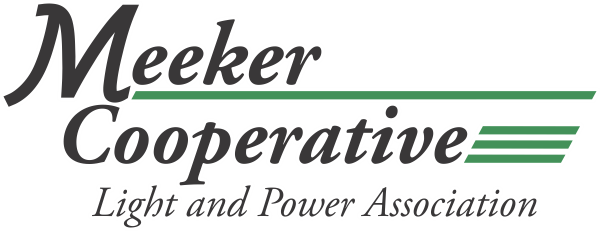Save Energy and Money with these proven tips:
Lighting
- Replace your incandescent lighting with LEDs, to 50 percent of the energy for the same amount of light. LEDs also last up to 20 times longer.
- Use motion sensors in little-used rooms so lighting is only used as needed.
- Turn off electric lighting displays and signs when your building is not occupied.
- Upgrade your T12 fluorescent system to an LED system to reduce energy use up to 70 percent.
- Use LED signs and outdoor lighting. Install timers, photo cells or motion sensors.
Meeker Cooperative offers rebates for retrofit lighting projects.
Rebate funds are available are on a first-come, first-served basis, so call the Co-op at 320-693-3231 and ask to speak with an Energy Services Representative.
HVAC System
- Use programmable thermostats that will automatically adjust temps when the building is unoccupied.
- Install locking devices on thermostats to maintain proper temperatures.
- Install high-efficiency HVAC equipment and put it on Energy Management to cut energy and bills.
- Install a zoned HVAC system to reduce energy use in little-used areas.
- Conduct regular maintenance of equipment, replace filters, clean condensers, and check coils for debris.
- Open south-facing blinds in the winter to increase passive heating. Close blinds in the summer to reduce heat infiltration.
Meeker Cooperative has rebates for high-efficiency HVAC systems that are put on Energy Management to reduce energy use.
Motors
- Shut off any motors that are running unnecessarily, such as ceiling fans in empty rooms
- Set your HVAC fans to "Auto" rather than "On".
- Install variable speed drives to reduce operating costs.
- Replace old, worn motors with high-efficiency models.
Meeker Cooperative has rebates for variable speed drives. Call the Co-op at 320-693-3231 and ask to speak with Energy Services Representative.
ENERGY STAR®
When you’re looking to improve, the first question you or your management might ask is, “How are we doing?” The next is, “how do we know?”
Benchmarking helps you answer these important questions. Put simply, benchmarking is the process of comparing your energy performance to something similar. “Something similar” might be internal, like performance at the same time last year. Or it might be external, like performance compared to similar facilities elsewhere.
Learn more about benchmarking for your business at energystar.gov.
